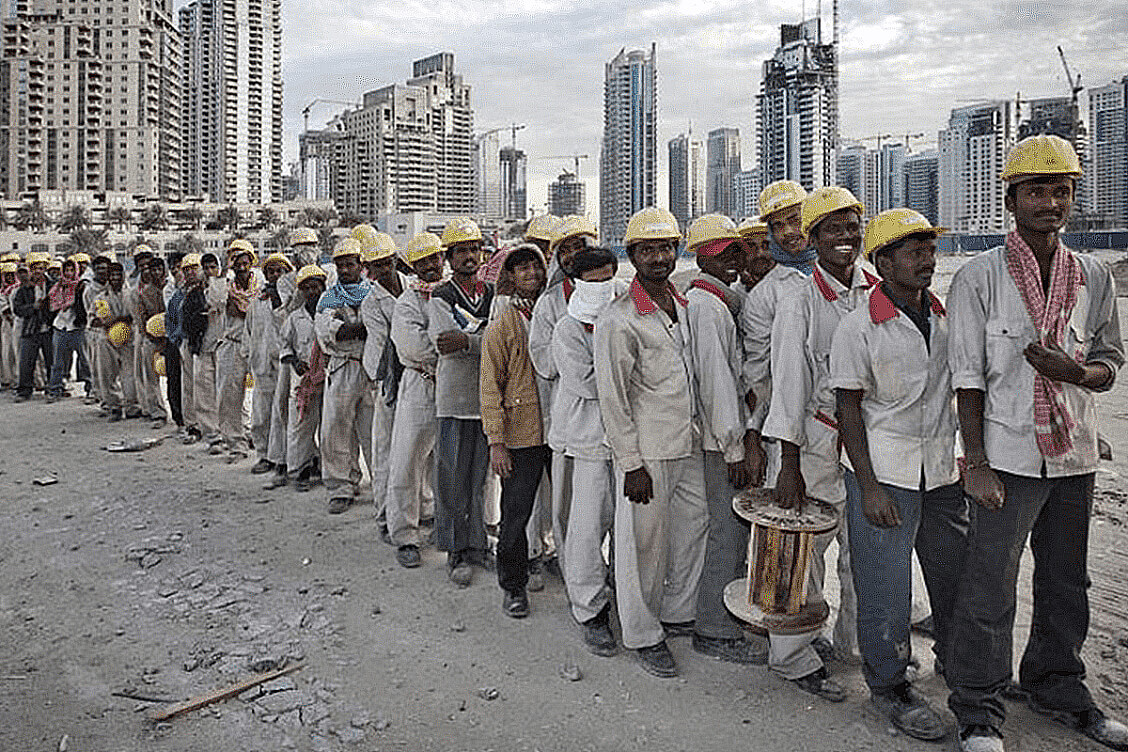Alaksandar Łukašenka’s proposal to invite up to 150,000 Pakistani workers has sparked anxiety across social media, but the Belarusian leader stands by the idea.

“Out of a thousand people, let’s say, 60 or 100 can be foreigners,” he told officials on April 25.
Those who oppose the arrival of foreign workers should be prepared to work for three—or at least two—people to offset labor shortages, Łukašenka said, indirectly acknowledging the scale of the issue.
Concerns
It is not that Belarusians are inherently hostile to foreign workers, but the numbers cited by Łukašenka and Pakistani Prime Minister Shehbaz Sharif have raised eyebrows. Commentators point out that the plan involves people from a very different cultural and religious background.
The initiative also appears inconsistent with the government’s harsh criticism of Europe’s migration policies. While state media insist Belarus is “not as stupid as Europe,” many citizens remain concerned.
Pakistan is often associated with poverty, lax sanitary standards, disease outbreaks, and street crime. The timing of the announcement has further fueled unease, coming amid renewed tensions between India and Pakistan, with Delhi accusing Islamabad of supporting cross-border terrorism.
The potential arrival of 150,000 Pakistani workers would be an unprecedented test of the much-touted Belarusian tolerance. The country has never faced a social challenge of this magnitude.
Moreover, the plan may be unrealistic. Łukašenka is known for his flair for political showmanship and frequently makes sweeping announcements during meetings with foreign leaders. Few of these proposals ever come to fruition.
Farms short of workers
On April 12, Łukašenka defended the initiative, telling reporters that authorities would carefully vet each laborer. He emphasized the need for skilled workers, not just any young jobseekers. He also suggested encouraging migrant workers to bring their families.
He cited staffing needs at the Baranavičy-based cotton mill and on farms across the country. However, the cotton mill does not require thousands, and Belarusian farms—known for low wages—struggle to attract even local workers, let alone foreigners.
Observers note that Belarus does not require a large number of unskilled workers. Meanwhile, skilled professionals are more likely to seek opportunities in Western countries, which offer far better infrastructure for integrating migrants, both economically and socially, argues economist Aleś Hudzija.
Police move to silence critics
Łukašenka and state media have actively promoted the plan to bring in Pakistani workers. One prominent propaganda talk show host sparked outrage by claiming that Belarusian women must secretly dream of being raped by Pakistani men—an offensive comment aimed at shaming women for not bearing more children.
On April 23, a Telegram channel linked to law enforcement posted a video of a young couple—likely coerced—apologizing on camera for “disseminating fake news” and “posting angry comments” about the migration plan.
A day earlier, on April 22, the interior ministry issued a warning to social media users, cautioning against spreading panic or inciting ethnic hatred.
The authoritarian government has made it clear: it has no intention of engaging the public in a discussion about this policy.
What about the numbers?
Based on February data showing 4.141 million employed workers in Belarus, having 60 to 100 foreign workers per 1,000 would mean a total of 250,000 to 400,000 foreign laborers nationwide.
Labor productivity
Łukašenka has acknowledged that labor productivity in Belarus is significantly lower than in the European Union.
However, this is not the fault of Belarusian workers. In fact, Belarusians are valued in EU countries for being hardworking, conscientious and diligent. Ironically, their productivity tends to be high abroad.
The root cause of low domestic productivity lies in Belarus’s Soviet legacy. The Soviet Union ultimately failed in its competition with the West, and even the Baltic states continue to struggle to close the productivity gap.
Łukašenka relies on outdated Soviet production systems, central planning and inefficient state-run enterprises. To maintain his grip on power, he has aligned Belarus with technologically backward Russia in opposition to the advanced economies of the West.
Compounding the issue, his authoritarian policies have driven hundreds of thousands of skilled Belarusians into exile, worsening the labor shortage he now seeks to solve with foreign workers.




